– Keynote Speakers –
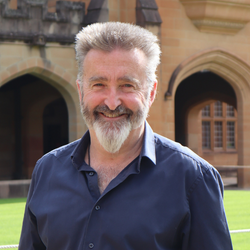
Keith Dobney
‘The Undiscovered Country’: Some Musings on Where Next for Archaeozoology?
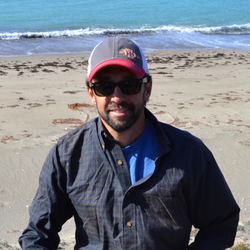
Todd Braje
The Promise and Pitfalls of Zooarchaeology and Historical Ecology in the Age of the Anthropocene:
Cases Studies from California’s Channel Islands
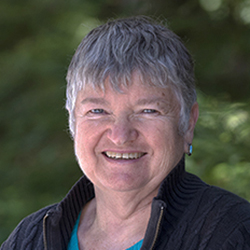
Diane Gifford-Gonzalez
A Life in Zooarchaeology: Looking Back and Looking Ahead
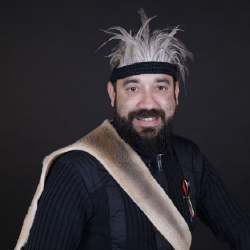
Amos Atkinson
Traditional Knowledge, Climate Change and Human Impacts: Past, Present and Future
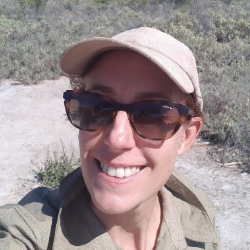
Cassandra Rowe
Traditional Knowledge, Climate Change and Human Impacts: Past, Present and Future
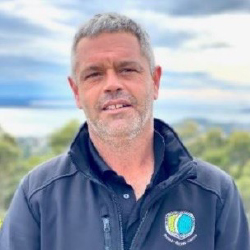
Jamie Tarrant
Traditional Knowledge, Climate Change and Human Impacts: Past, Present and Future
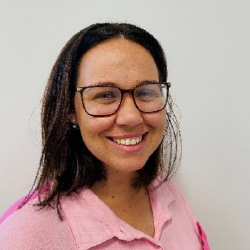
Shawnee Gorringe
Traditional Knowledge, Climate Change and Human Impacts: Past, Present and Future
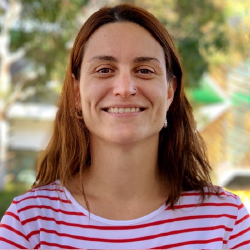
Sofia Samper Carro
Traditional Knowledge, Climate Change and Human Impacts: Past, Present and Future

Sofia Samper Carro
Dr Sofia Samper Carro is Senior Research Fellow at the Australian National University and a Postdoctoral researcher at ARC Centre of Excellence for Australian Biodiversity and Heritage (CABAH). She is a zooarchaeologist with a background in taphonomy, geometric morphometrics and bioanthropological analyses. Her research interests include investigating human-animal interactions from the Pleistocene onwards. She is involved in several projects in Western Europe, Island Southeast Asia and Australia. She is currently leading CABAH’s Legacy Project Ozboneprot, a project aimed at developing the first database of marsupial proteomic data to serve as a reference for the analysis of archaeological and palaeontological assemblages through palaeoproteomics (i.e. ancient bone protein).
Traditional Knowledge, Climate Change and Human Impacts: Past, Present and Future
This plenary session brings together Indigenous knowledge holders, (palaeo)environmental scientists, and archaeologists to discuss how we can rethink our approach to the current climate change crises. We will discuss how weaving together deep-time and contemporary Traditional Ecological Knowledge (TEK) and cultural knowledge with western science can help us better understand and communicate the long-term impacts of climate change, and how bringing together different ways of knowing and doing can help us navigate anthropogenic impacts on the environment and help look after Country.
We would like to invite ICAZ participants to submit potential questions or topics that the panel can address. Please forward these to the discussion moderator Jillian Garvey (j.garvey@latrobe.edu.au).

Shawnee Gorringe
Shawnee Gorringe is a proud Mithaka woman from far south-western Queensland, within the Lake Eyre Basin’s Channel Country. She works for her own mob through their PBC, Mithaka Aboriginal Corporation in areas such as Operations Administration and Project Coordination. Shawnee has a keen interest in Cultural Heritage and healthy, responsible, and sustainable land management. Shawnee is currently studying a Bachelor of Arts (Archaeology), with minors in Indigenous Studies and Palaeontology. Shawnee is a co-curator of the Kirrenderri – Heart of the Channel Country Exhibition which is currently touring Queensland and co-editor and contributor to the Kirrenderri exhibition catalogue and the associated education kit.
Traditional Knowledge, Climate Change and Human Impacts: Past, Present and Future
This plenary session brings together Indigenous knowledge holders, (palaeo)environmental scientists, and archaeologists to discuss how we can rethink our approach to the current climate change crises. We will discuss how weaving together deep-time and contemporary Traditional Ecological Knowledge (TEK) and cultural knowledge with western science can help us better understand and communicate the long-term impacts of climate change, and how bringing together different ways of knowing and doing can help us navigate anthropogenic impacts on the environment and help look after Country.
We would like to invite ICAZ participants to submit potential questions or topics that the panel can address. Please forward these to the discussion moderator Jillian Garvey (j.garvey@latrobe.edu.au).

Jamie Tarrant
Jamie Tarrant, a Maiangal man from the Worimi nation of Port Stephens, is a Visitor Services Assistant with the Hunter Coast Area in Nelson Bay NPWS and has been the past 15 years. During this time Jamie has and continues to advocate for Culture, Country and Community and is a well-respected individual within NPWS and the broader community. He is a Registered Traditional Owner and the current Chair of the Worimi Conservation Lands (WCL) Board of Management (BoM).
Jamie’s determination, dedication and passion for community and culture is second to none. Cultural is at the heart of everything he does, and he will not compromise when it comes to standing up and fighting for what he’s Elders have done before him. He truly is an inspiration to many and deserves recognition for his years of commitment to Culture and Heritage. He is a man who has given so much to so many others within the NPWS family and wider community when it comes to protecting, promoting, and celebrating Aboriginal culture and heritage.
Whilst advocating for the protection of Aboriginal culture and heritage on Broughton Island, Jamie has built collaborative relationships with staff from the University of Sydney among other various stakeholders contributing to the Broughton Island Cultural Heritage Research Project. This project has significantly contributed to the successful outcomes in understanding of conserving Aboriginal heritage on Broughton Island. With Jamie’s continued contributions he’s giving culture the limelight it deserves and the outcomes from this is immeasurable.
Jamie is a knowledge holder and keeper of stories who is more than willing to share this knowledge to improve understanding of and help build respect for Aboriginal culture and heritage.
Traditional Knowledge, Climate Change and Human Impacts: Past, Present and Future
This plenary session brings together Indigenous knowledge holders, (palaeo)environmental scientists, and archaeologists to discuss how we can rethink our approach to the current climate change crises. We will discuss how weaving together deep-time and contemporary Traditional Ecological Knowledge (TEK) and cultural knowledge with western science can help us better understand and communicate the long-term impacts of climate change, and how bringing together different ways of knowing and doing can help us navigate anthropogenic impacts on the environment and help look after Country.
We would like to invite ICAZ participants to submit potential questions or topics that the panel can address. Please forward these to the discussion moderator Jillian Garvey (j.garvey@latrobe.edu.au).

Cassandra Rowe
Cassandra is a palaeoecologist, with a background in botany and geography, specialising in the use of pollen and charcoal to reconstruct past environments. Her research interests include the action of climate change and fire dynamics on ecosystem variability, and human-landscape relationships on vegetation pattern, with emphasis on tropical savanna environments, mangrove and island flora. The application of environmental history to ecosystem conservation-management is an additional focus.
Cassandra has wide experience working across northern Australia, extending into southern lowland Papua New Guinea. She has participated extensively in archaeological and geomorphological field projects, focused on multi-discipline data integration, and working in close association with Indigenous communities. She is currently a Research Fellow at James Cook University, based in Cairns.
Traditional Knowledge, Climate Change and Human Impacts: Past, Present and Future
This plenary session brings together Indigenous knowledge holders, (palaeo)environmental scientists, and archaeologists to discuss how we can rethink our approach to the current climate change crises. We will discuss how weaving together deep-time and contemporary Traditional Ecological Knowledge (TEK) and cultural knowledge with western science can help us better understand and communicate the long-term impacts of climate change, and how bringing together different ways of knowing and doing can help us navigate anthropogenic impacts on the environment and help look after Country.
We would like to invite ICAZ participants to submit potential questions or topics that the panel can address. Please forward these to the discussion moderator Jillian Garvey (j.garvey@latrobe.edu.au).

Amos Atkinson
Living on Bangarang/Yorta Yorta lands, Amos is a proud Way Wurru, Bangerang, Dja Dja Wurrung, Barrapa Barrapa, Wemba Wemba, Daug Wurrung, Ngura-iliam Wurrung, Wiradjuri man. He has deep-family connections and has always lived on Country, with an extensive knowledge of all his Nations’ history, genealogy, and culture. Amos is a cultural fire practioner having learnt from Aboriginal people from all over Australia and is bringing this knowledge back to Victoria to help heal and care for Country. As part of this healing, and sharing knowledge, Amos is involved with various research projects on Country including the Australian Research Council funded Wii Walla Walla Cajella (Fire, Food and Flood) project on Yung Balug Country in northern Victoria, has his own cultural heritage education business Wannyarra Woka which brings together his passion and knowledge for Country, and is undertaking a PhD at RMIT focusing on how culture can heal First Nation people.
‘I envision myself being the connector between western and cultural knowledge. I want to use this knowledge to make a better outcome for everyone’.
Traditional Knowledge, Climate Change and Human Impacts: Past, Present and Future
This plenary session brings together Indigenous knowledge holders, (palaeo)environmental scientists, and archaeologists to discuss how we can rethink our approach to the current climate change crises. We will discuss how weaving together deep-time and contemporary Traditional Ecological Knowledge (TEK) and cultural knowledge with western science can help us better understand and communicate the long-term impacts of climate change, and how bringing together different ways of knowing and doing can help us navigate anthropogenic impacts on the environment and help look after Country.
We would like to invite ICAZ participants to submit potential questions or topics that the panel can address. Please forward these to the discussion moderator Jillian Garvey (j.garvey@latrobe.edu.au).

Diane Gifford-Gonzalez
Diane is one of the world’s leading zooarchaeologists. Over her long career, she has been the President of both the Society for American Archaeology and the Society of Africanist Archaeologists, and has served on boards for the International Conference of Archaeozoology, the Society for American Archaeology, and the Archaeology Division of the American Anthropological Association. Diane’s work in Africa, at Lake Turkana, put her at the forefront of scholars who study pastoralism and animal domestication.
A Life in Zooarchaeology: Looking Back and Looking Ahead
Over a half-century has elapsed since I began studying with paleontologists and zoologists, while simultaneously absorbing archaeological theory and method from British-trained mentors at the University of California, Berkeley. My perspective on our shared global practices thus is international but basically anglophone, using “zooarchaeology” to characterize our practice. While my students often have become proficient in isotopic ecology, ZooMS, and other advanced methods, I continue the basic tradition of taxonomic identification using comparative vertebrate morphology and modifications analysis based upon actualistic research, but often supplemented by stable isotopes, proteomics, and ancient DNA supplied by specialist colleagues.
From the late 1960s and early 1970s, a staggering number of technical and methodological achievements have marked our discipline, while we still make slow progress toward universally accepted methods of measurement and comparison. Nonetheless, we know much more about human entanglements with animals and landscapes through time, and about how global climate change and human activities have interacted to alter local environments. I offer examples of such topics from my own research in two very different regions and foci: early pastoralists in desiccating Africa and Holocene Native Californians who, though not reliant on domesticated plants and animals, fine-tuned their environments through fire-based land management and selective shellfish and seaweed harvesting. Finally, I will comment on the fundamentally methodological nature and the current state of archaeological fauna analysis, and offer opinions on how our field might be of most use to our own species and others in a time of increasingly severe climate change impacts.

Keith Dobney
Keith is an archaeologist, but one that’s fascinated by the biology of the past and how that intersects with and impacts human behaviour and cultural development. He has always been excited by the inherent cross-disciplinary nature of archaeology as a field of study, which has enabled him to engage with a range of other disciplines where he’s learnt new things from inspiring colleagues and students.
‘The Undiscovered Country’: Some Musings on Where Next for Archaeozoology?
The subdiscipline of archaeozoology, which flourished as part of the scientific revolution born out of the so called ‘new’ or ‘processual’ archaeology movement of the 1960s-70s, was truly an ‘undiscovered country’. In seeking to explore human-animal relationships, the systematic recovery and new analyses of zooarchaeological remains developed apace in what became a ‘sweet spot’ for linking the human past with the natural world. From hunting and gathering to domestication, stockkeeping, animal management and improvement, to health, diet, climate change, seasonality and even belief systems (to name but a few), our understanding of complex bio-cultural interactions over many millennia has advanced apace.
Always an inherently interdisciplinary endeavour, the incorporation of new methods and approaches (e.g. ancient biomolecules and advanced morphometrics), has both significantly advanced and in some cases radically re-shaped that understanding, creating challenges, as well as new opportunities.
Along with many other explorers, I’ve been lucky enough to have been involved in surveying and mapping that ‘undiscovered country’ over the last 40 years in a variety of roles (from commercial contractor and heritage advisor to researcher, lecturer and now senior academic manager). In this keynote, I’ll attempt to briefly discuss what I’ve learnt, what might be left to discover, where we should now be looking and why we urgently need to re-purpose our efforts towards the present to help save the planet!

Todd Braje
Todd is a Professor of Anthropology at San Diego State University specializing in long-term human-environmental interactions, the archaeology of maritime societies, historical ecological approaches to understanding coastal hunter-gatherer-fishers, and the peopling of the New World.
The Promise and Pitfalls of Zooarchaeology and Historical Ecology in the Age of the Anthropocene: Cases Studies from California’s Channel Islands
While we continue to grapple with a global pandemic, social unrest, and political instability, ever looming are the immense challenges posed by climate change, global warming, extinctions, rising seas, and our modern environmental crisis. There is little doubt our planet is approaching a tipping point, and interdisciplinary scientists continue to call for global action. Human alteration of Earth systems has become so substantial that many scientists argue we now live in the Anthropocene, a new geologic epoch of our own making. Much of the Anthropocene narrative, however, positions the environmental crisis as though it was solely created in recent decades. The reality is that our environmental challenges have arisen over millennia and understanding the linkages between past and present is essential for charting a path forward. Zooarchaeology and historical ecology have incredible potential to provide the deep historical datasets necessary for helping us understand, evaluate, and remediate many of the environmental challenges facing us today. I review recent research from California’s Channel Islands that demonstrate how perspectives from deep history are key for helping us confront the challenges of our Anthropocene future and share lessons learned about how ‘action (zoo)archaeology’ can benefit an imperiled Earth.
